Gardening With Mother Nature
Invest in a healthier environment for the future
by caring
for your property in harmony with nature.
The Best Laid Plans. .
.
...Will help you create an environmentally sound landscape that will
be easy to care for and a haven for wildlife. Before you begin to plant:
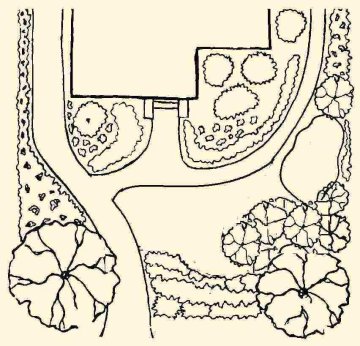
-
Analyze the special characteristics of your property. What are the patterns
of sun and shade throughout the day during the year? Where are existing
trees? Note limitations to planting: power lines or other utilities, septic
system, property boundaries.
-
Decide what the needs of your household are. Do you want an area for
sitting and entertaining? Vegetable or flower gardens? Fences, privacy
screens or windbreaks? Shade in summer? Utility buildings, paths or play
areas? Vehicle access and parking?
-
Determine how much time you want to spend maintaining your landscape.
(Trees and shrubs are relatively maintenance free once they are established.
Lawns, annuals and perennials require more care and more frequent watering.)
Then sketch a simple plan.
-
Accept the limitations of your property and turn them into assets.
Amend the soil, build raised beds, or create a pond but don't move mountains
or do wholesale soil replacement.
Catch a Cup of Soil.
. .
And keep it from the river's flow. When land is cleared to build
a house or plant a garden, soil that was once protected from erosion by
leaf litter or ground cover becomes exposed. When it rains, this precious
soil washes off the land and muddies our rivers and streams. Here are some
suggestions to help you "catch a cup of soil."
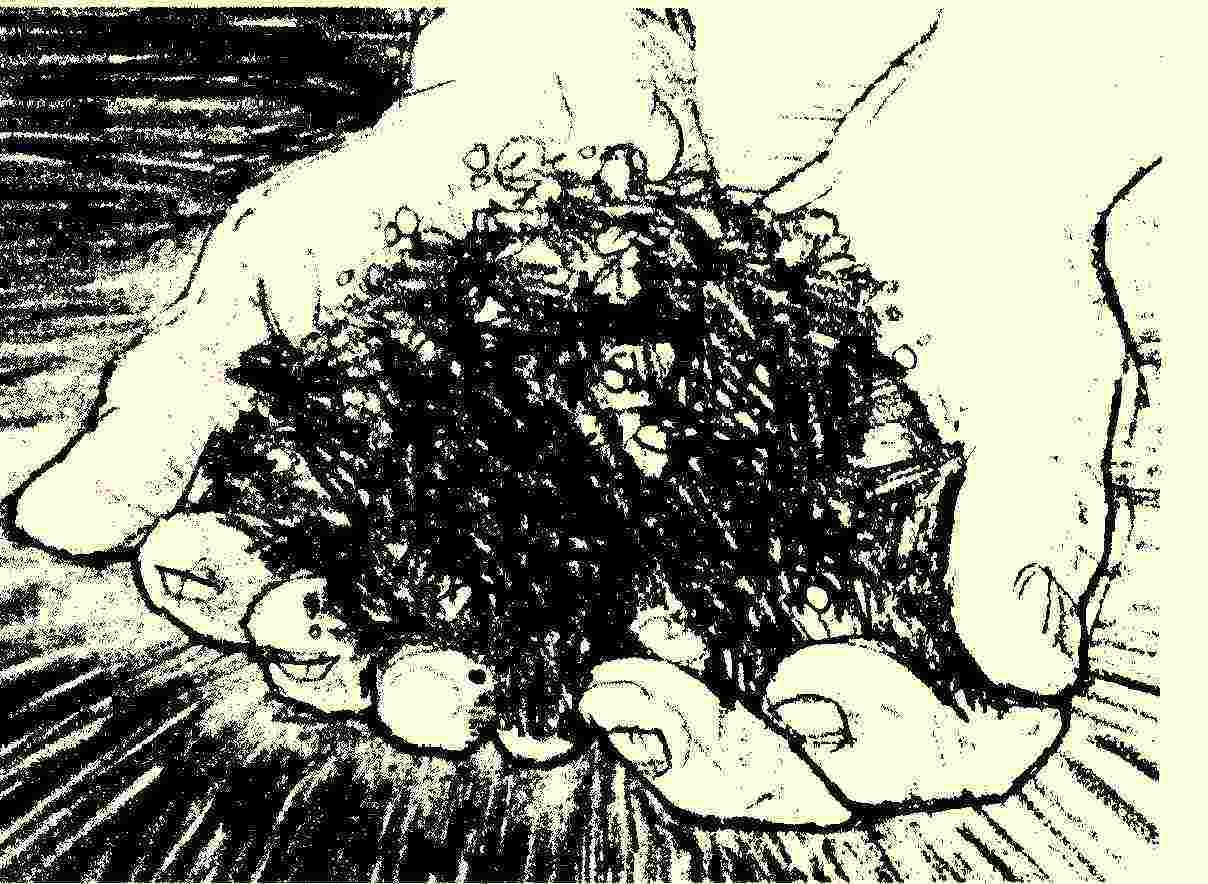
-
Check your property for signs of erosion. Plant trees, shrubs or groundcover,
reseed bare spots in your lawn. If possible, regrade your property to minimize
steep slopes.
-
Install a silt fence if you are disturbing ground near any body of water.
Mulch or seed the disturbed area immediately after work is completed.
-
Leave natural vegetation undisturbed wherever possible, especially near
ditches and streams. Plant roots hold soil in place and overhanging tree
branches keep streams cool. A wide buffer of plants allows rainwater to
filter slowly into the ground instead of running off.
-
Use gravel, crushed rock, or other permeable paving on driveways and
paths to allow rainwater to soak into the ground instead of running off.
Be Kind to Earthworms. .
.
For they truly inherit the earth. Through their bodies go millions
of tons of soil, and their castings" enrich and aerate the ground so you
can grow healthy plants. But they don't like hemicals or poor soil. Here's
what you can do to improve your soil and attract earthworms:
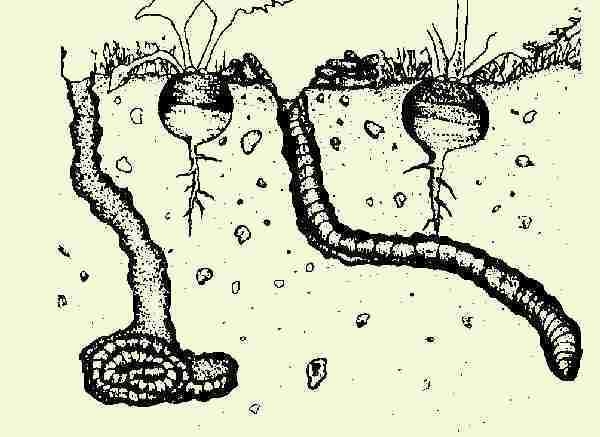
-
Examine your soil to determine its type. Is it mostly sand? Clay?
Loam (a mixture of sand, clay, and silt)? Is there more than one soil type
on your property?
-
Have your soil tested for pH (acidity) and nutrients about a month before
you plant. North Carolina provides free soil testing and will tell you
how much fertilizer and lime is needed for your purposes. Contact a Cooperative
Extension agent for details.
-
Check for drainage by digging a hole about a foot deep and filling it
with water. Inspect the hole periodically. If water remains after 12 hours,
drainage is poor and you will have to be highly selective in your choice
of plants or create raised beds.
-
Add organic matter. Work compost, peat moss, or pine bark mulch into
your planting beds. But don't add sand to clay soils, or vice versa. You'll
create concrete!
Recycle Mother Nature's Way.
. .
Compost yard and kitchen wastes. Compost is tops for improving soil:
it helps sandy soil retain water and lightens clay soil for better drainage.
Compost releases nutrients slowly, over time and encourages populations
of beneficial organisms which improve soil structure and fight disease.

-
Set aside a corner of your yard for composting. Use a bin or make
a pile. Your pile should be a minimum of 3 feet by 3 feet by 3 feet. Add
only healthy garden trash and kitchen scraps, no meat products or animal
wastes. Cover unsightly kitchen scraps with garden trash, if you wish.
Twigs, branches and newspapers can be shredded and added.
-
Turn your pile if you want it to "cook" faster. Check once in
a while to make sure it is moist. Start a second pile while the first one
is "cooking." Let Nature do the work for a few months.
-
Broadcast the "brown gold" on your beds. If weed seed has not been entirely
killed because your pile did not heat up enough, work compost into the
soil when planting.
Keep your Balance. . .
The balance in your garden between predator and prey, plants and
animals, life and death. Plants live in communities. They interact with
other plants and animals. When you provide food, water and cover in secluded
sanctuaries and travel corridors for wildlife, you are helping to maintain
complex food webs that have developed over eons.
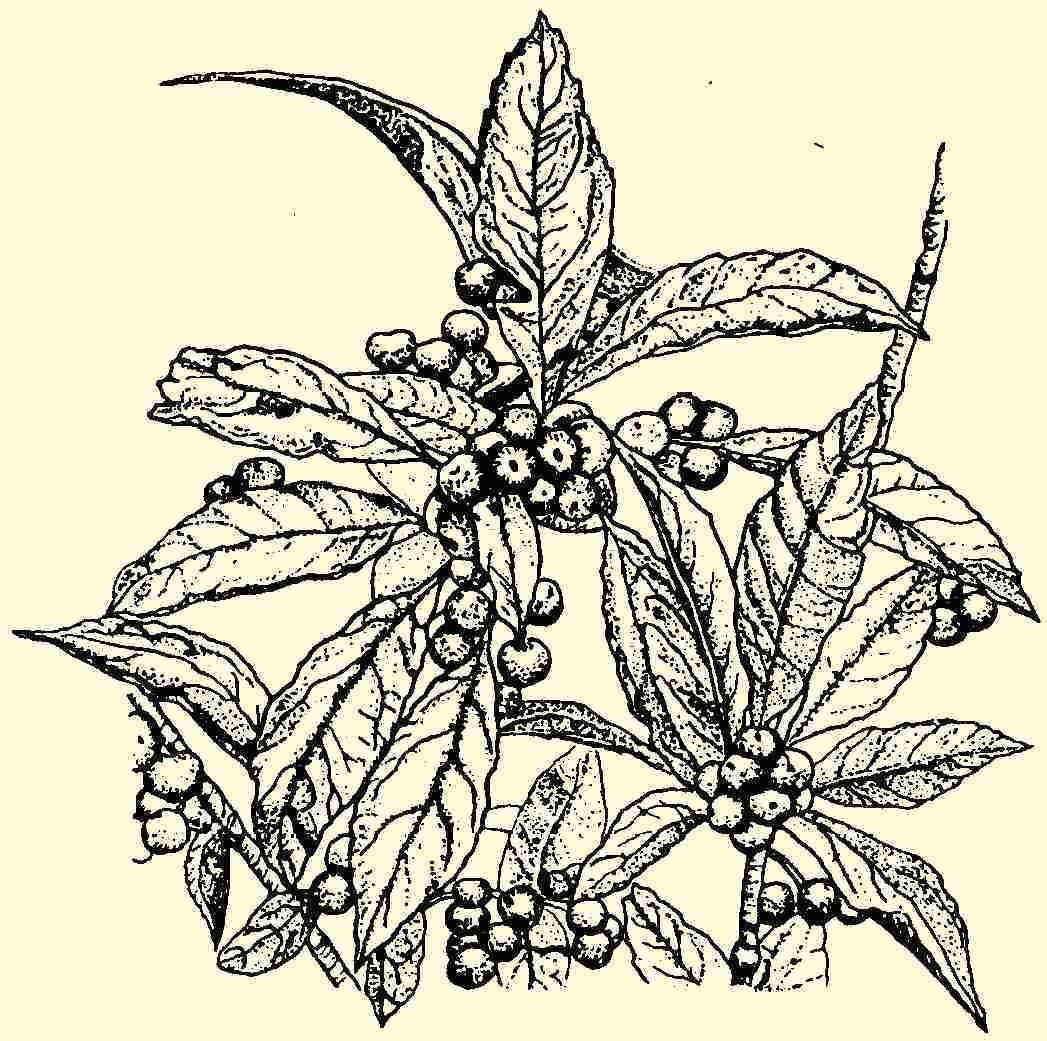
-
Choose native plants when possible. They are beautiful, well adapted
to your area and need less fertilizer and water than exotics. They provide
food and cover for animals and many are hosts to the larvae of moths and
butterflies. Be sure your plants have proper light, moisture and soil.
Dig a "million dollar" hole for each plant, twice the diameter of the root
ball, and water well after planting.
Caution: Plants collected in the wild usually
have little chance of surviving and may already be endangered. Choose sturdy,
nursery-grown stock unless you get permission from a landowner to save
a plant from the bulldozer.
-
Strive for variety in your plantings. Develop woodland, pond, meadow
and native perennial garden sites with curved or irregular borders. Transition
zones, or "edges" of these habitats support many kinds of animals.
-
Think of woodlands as an apartment house: a canopy of tall trees,
an understory of small trees and shrubs, and a low growth of groundcover,
and plant accordingly. If you find you have too much shade, remove lower
limbs from large trees.
-
Plant a mix of flowers, vegetables and herbs to control pests and diseases.
A "natural" landscape with a variety of species is easier to care for than
manicured hedges.
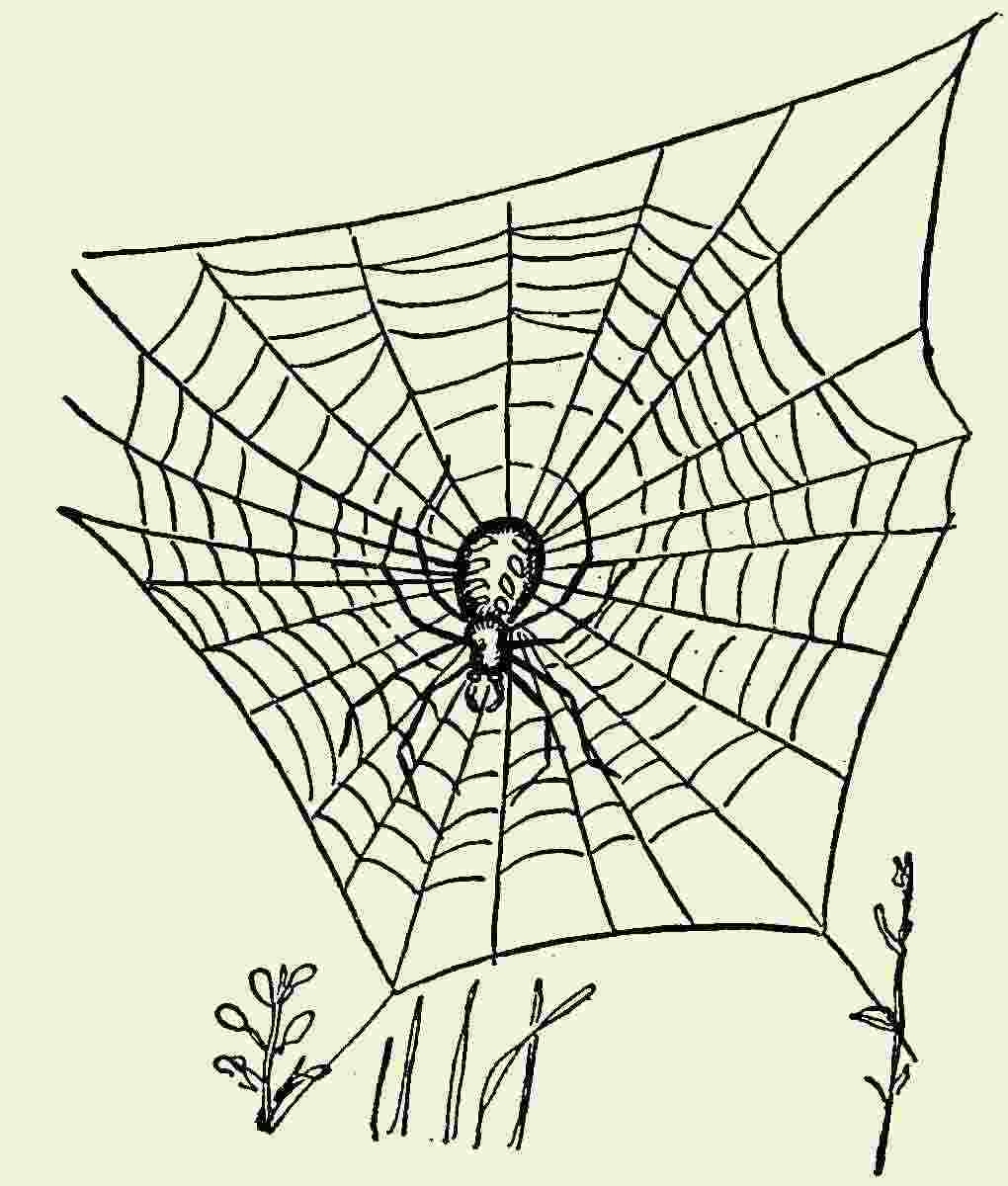
-
Keep your yard free of chemicals to encourage "beneficial" animals.
Spiders, lacewings, beeflies, praying mantises, dragonflies, soldier beetles,
ladybugs, earthworms, honeybees and bumblebees help to maintain a healthy
balance in your garden. Learn about their life cycles.
-
Limit high-maintenance lawn area and let clippings fall when you mow.
Consider allowing a meadow to develop at the edges; generally, annual mowing
is sufficient to maintain a meadow.
Hug a Bug--or Bats
in the Belfry. . .
The fruits of your garden are not necessarily greenery or blossoms,
but the variety of life that is encouraged. An evening stroll around the
grounds is a fine way to discover what's new in the garden, meet some new
tenants and unwind from the bustle of the day.
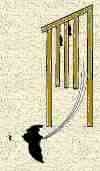
-
Encourage birds and bats by setting out houses built to appropriate
specifications.
-
Allow some dead trees to remain standing (a distance from buildings),
as they make good homes for animals. A brush pile constructed from prunings
gives cover for small animals.
-
Consider including a pond and birdbaths in your landscaping to provide
water for small animals. Once balanced, a pond requires virtually no maintenance.
-
Create a "puddle" for butterflies by filling a bucket with damp
sand and sinking it into the ground. Rocks and twigs will allow butterflies
to perch as they drink.
-
Plant herbs and wildflowers that attract "beneficial insects." Some
examples are fennel, dill, angelica, parsley, lovage, thyme, Queen Anne's
lace, sunflower, black-eyed Susan, daisies, goldenrod, yarrow, milkweed,
butterfly weed, tansy, clover, and cosmos.
Don't be a Water Hog. . .
Imagine stepping back in time to the days when people had to fetch
water from a nearby stream. How much water do you think you would use in
a day? How much do you think you would waste? As communities grow, many
are finding that water is in short supply and must be "imported" from great
distances. It makes good sense to plan a garden that does not need constant
watering.

-
Learn to recognize when your plants need water. Use a simple houseplant
moisture tester to determine soil conditions. Grass will lie flat after
being walked on and leaves will appear dull or feel soft to touch.
-
Choose plants with low water requirements. If possible, group plants
by water needs so watering can be targeted properly.
-
Water thoroughly only when necessary, but avoid overwatering which is
wasteful and can cause runoff. (Plants grow best when they have deep roots.)
Avoid automatic timed systems that run regardless of weather.
-
Mulch with two to four inches of wood chips, shredded bark or tree leaves.
Mulching greatly reduces the need for watering, keeps weeds down, maintains
an even soil temperature and reduces erosion. As mulch decays it improves
the soil.
To Spray or Not to
Spray. . .
Most insects you see in your yard are not harmful to your plants.
Following common-sense guidelines and using non-toxic products that target
particular problems will eliminate the need for chemicals that kill indiscriminately.
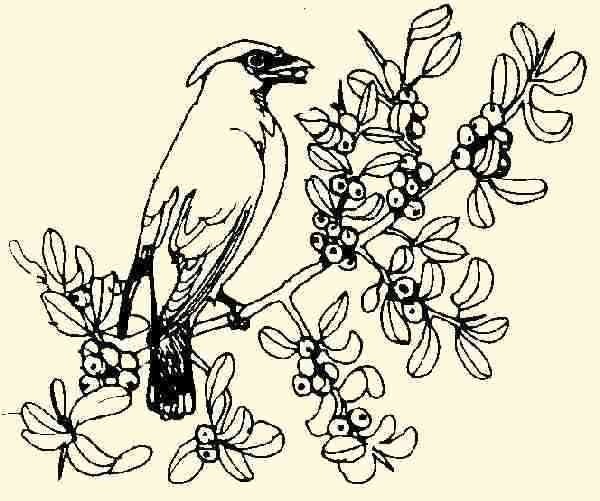
-
Choose plants that are well adapted to your area and plant them in soils
and locations that will help them prosper. A strong plant is less susceptible
to insects than a weak one.
-
Learn to tolerate some damage to your plants. Some insects will attack
for a short period of time before moving on to another stage in their life
cycle, and the plant will recover without treatment.
-
Use some old-fashioned but time-honored remedies. Remove Japanese beetles
by hand and drop them into a jar of vinegar. Diatomaceous earth sprinkled
on the ground in spring greatly reduces snail and slug populations. Insecticidal
soaps, horticultural oils or a jet spray of water can be most effective.
You can make your own insect spray from 1/4 cup of Murphy's Oil Soap and
1 tablespoon of liquid dish detergent in a gallon of water.
-
Keep your yard litter-free. Remove sources of standing water in which
mosquito larvae flourish. Regularly mow grassy areas to limit chigger infestations.
Many pet owners find borax or boric acid around the house works well to
control fleas.
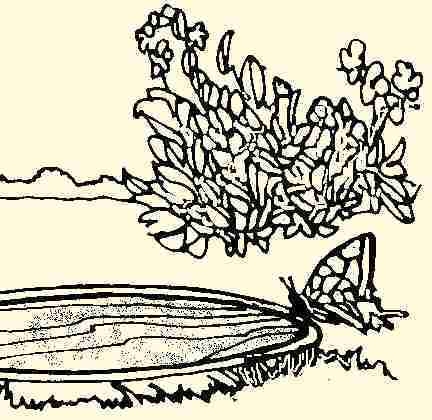
-
Use toxic chemicals only as a last resort and only after properly identifying
the problem. Spraying may bring temporary results but it will not necessarily
eliminate the pest. Always use the least toxic chemical possible. (Products
marked Caution are less toxic than those marked Warning.) Follow all directions
carefully. Apply only at the proper rate and only on calm, clear days when
rain is not expected. Evening applications are least likely to harm honeybees,
since they are back in the hive soon after dusk.
Be a Forest Steward. . .
Learn more about how you can protect the environment in your backyard.

-
Join North Carolina's Forest Stewardship Program. Forest stewardship
promotes conservation of forest resources. If you own ten acres or more,
you can receive help from state agencies and professionals to develop a
long-range plan for managing your land. For information write to Forest
Stewardship Coordinator, PO Box 27687, Raleigh, NC 27611.
-
Join the National Wildlife Federation's popular Backyard Wildlife
Habitat Program. Subscribers receive information packets and booklets that
explain how city, suburban and rural residents can plan home landscaping
with the needs of wildlife in mind. Write to The National Wildlife Federation,
8925 Leesburg Pike, Vienna, VA 22184.
For more Information. . .
County Cooperative Extension Agents can provide information on plants,
soils, composting, diseases and pests in your area. The following references
will also be helpful.
-
Albemarle Environmental Association, Going Native: A Guide to
Plants for Moist Soils in Southern Gardens, 1995.
-
Alliance for the Chesapeake Bay, Bayscapes. Send $3.00 to 6600
York Road, Suite 100, Baltimore, Maryland 21212 for a series of guides
on environmental landscaping.
-
Bir, Richard E., Growing and Propagating Showy Native Woody Plants,
University of North Carolina, 1993.
-
Dunn, Michael, and Sidney Shearin, Plant It and They Will Come,
North Carolina State Museum of Natural Sciences and Division of Parks and
Recreation, Raleigh, 1994
-
Ernst, Ruth Shaw, The Naturalist's Garden, Globe Pequot, 1993.
-
Foote, Leonard, & Samuel Jones, Native Shrubs and Woody
Vines of the Southeast and Gardening with Native Wildflowers,
Timber Press, 1990.
The production of GARDENING WITH MOTHER NATURE was made
possible by a grant from the North Carolina Division of Forest Resources












